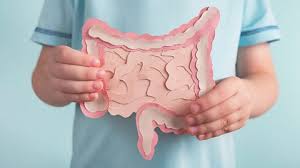As parents, we often focus on giving our kids the right nutrition — protein for muscles, calcium for bones, and vitamins for growth. However, there’s one area of health that quietly plays a significant role in their overall well-being and gut health.
A healthy gut doesn’t just mean better digestion — it influences your child’s immunity, mood, energy levels, and even brain development. Let’s dive into why gut health matters for growing kids and how you can help your little one build a happy, healthy tummy.
Why Gut Health Matters in Childhood?
Your child’s gut is home to trillions of microorganisms — collectively known as the gut microbiome. This diverse community of bacteria, fungi, and other microbes helps:
- Digest food and absorb nutrients efficiently
- Support the immune system, protecting against infections
- Regulate mood and behavior by producing feel-good chemicals like serotonin
- Reduce inflammation and promote long-term health
When the balance of “good” and “bad” bacteria in the gut is disrupted, it can lead to issues like constipation, food intolerances, frequent colds, skin problems, and even low energy or mood swings.
Signs Your Child’s Gut Might Be Unhappy
Keep an eye out for these subtle clues that your child’s gut health may need some support:
- Bloating or gas after meals
- Irregular bowel movements (constipation or diarrhea)
- Food sensitivities or picky eating
- Frequent stomach aches
- Low immunity or frequent infections
- Eczema or skin rashes
- Fatigue or irritability
If you notice several of these signs regularly, it might be time to look at what’s going on in their gut.
Building a Healthy Gut — Naturally
The good news? You can help your child’s gut thrive with a few simple, everyday habits.
1. Add Fiber-Rich Foods
- Whole grains like oats, brown rice, and whole wheat
- Fruits such as apples, bananas, and berries
- Vegetables like carrots, peas, and spinach
- Legumes such as lentils and chickpeas
2. Include Probiotic-Rich Foods
- Yogurt with live cultures
- Kefir (fermented milk drink)
- Homemade pickles or fermented veggies
- Buttermilk
3. Don’t Forget Prebiotics
- Bananas
- Garlic
- Onions
- Oats
4. Limit Processed Foods and Sugar
Highly processed snacks and sugary treats can disrupt gut bacteria and lead to inflammation. Encourage fresh, home-cooked meals whenever possible.
5. Hydration Is Key
Water helps flush out toxins and keeps digestion running smoothly. Encourage your kids to drink plenty of fluids — plain water, coconut water, or soups
6. Encourage Outdoor Play
Playing outside exposes kids to natural microbes that help diversify their gut microbiome. Plus, physical activity boosts digestion and overall health.
7. Ensure Quality Sleep
Sleep supports the body’s repair and digestion cycles. Aim for 9–11 hours of sleep, depending on your child’s age.
The Gut–Brain Connection
Did you know that your child’s gut and brain are constantly communicating through the gut-brain axis?
This means an imbalanced gut can affect mood, focus, and even learning ability. Kids with a healthy gut often show better concentration, emotional balance, and energy throughout the day.
When to Seek Help?
If digestive problems persist — like chronic constipation, severe bloating, or frequent tummy aches — consult a pediatrician or child nutritionist. Sometimes, underlying food intolerances or allergies may be involved.
A Healthy Gut = A Happier Child
Building gut health isn’t about drastic changes — it’s about consistent, small steps that nurture your child’s microbiome over time. With the right mix of wholesome foods, hydration, outdoor play, and good sleep, you’ll be setting the foundation for lifelong health and vitality.
A healthy gut truly means a happy, thriving child — from the inside out!



